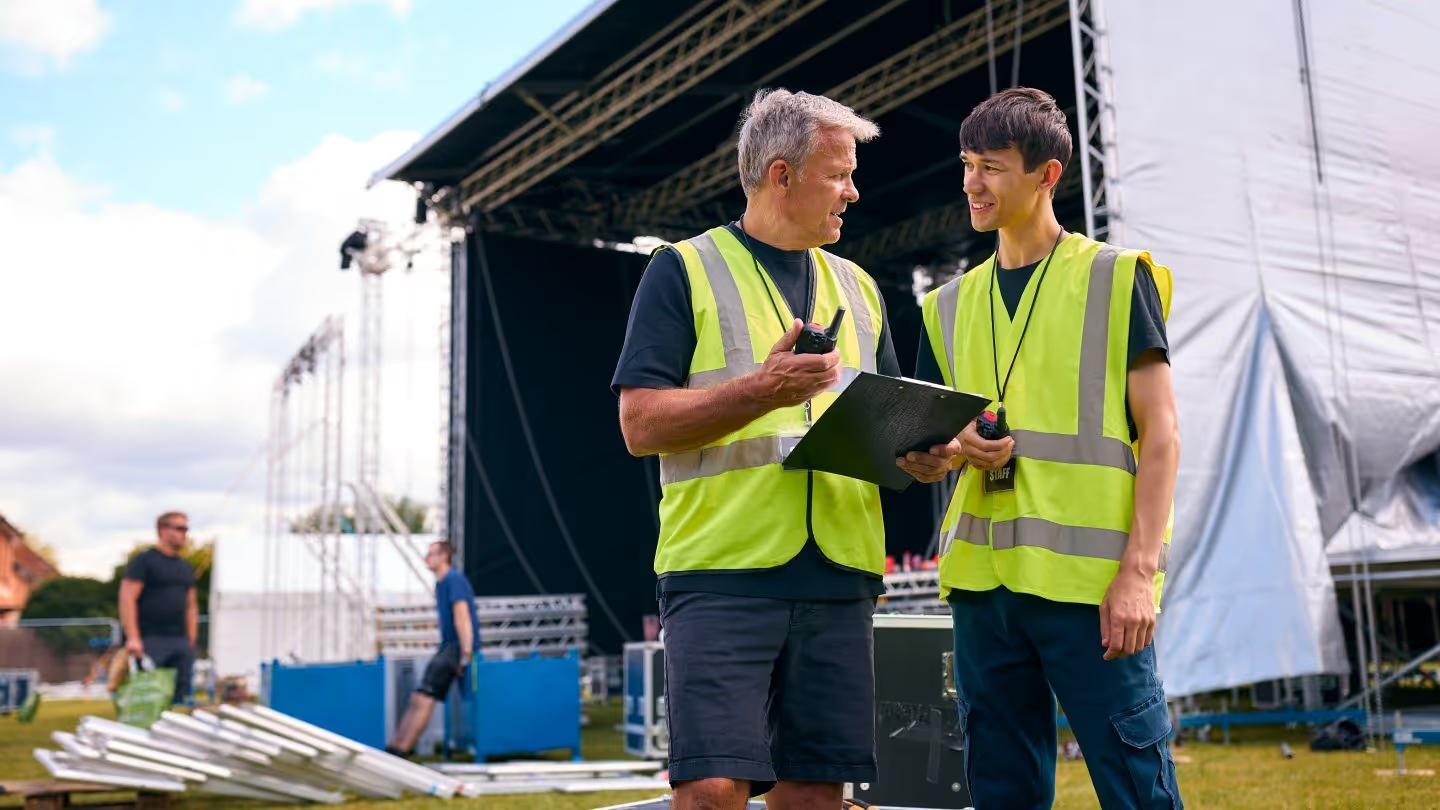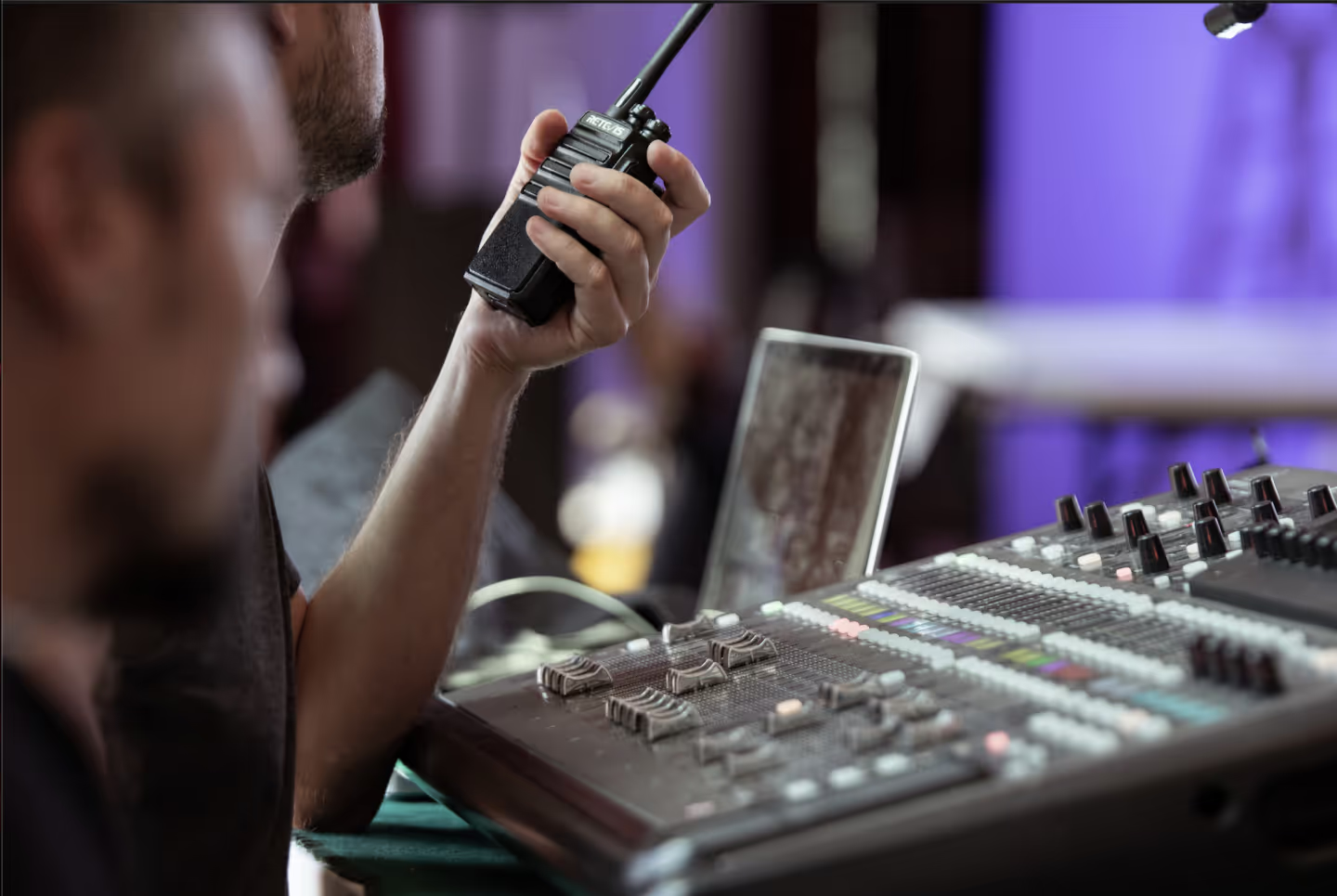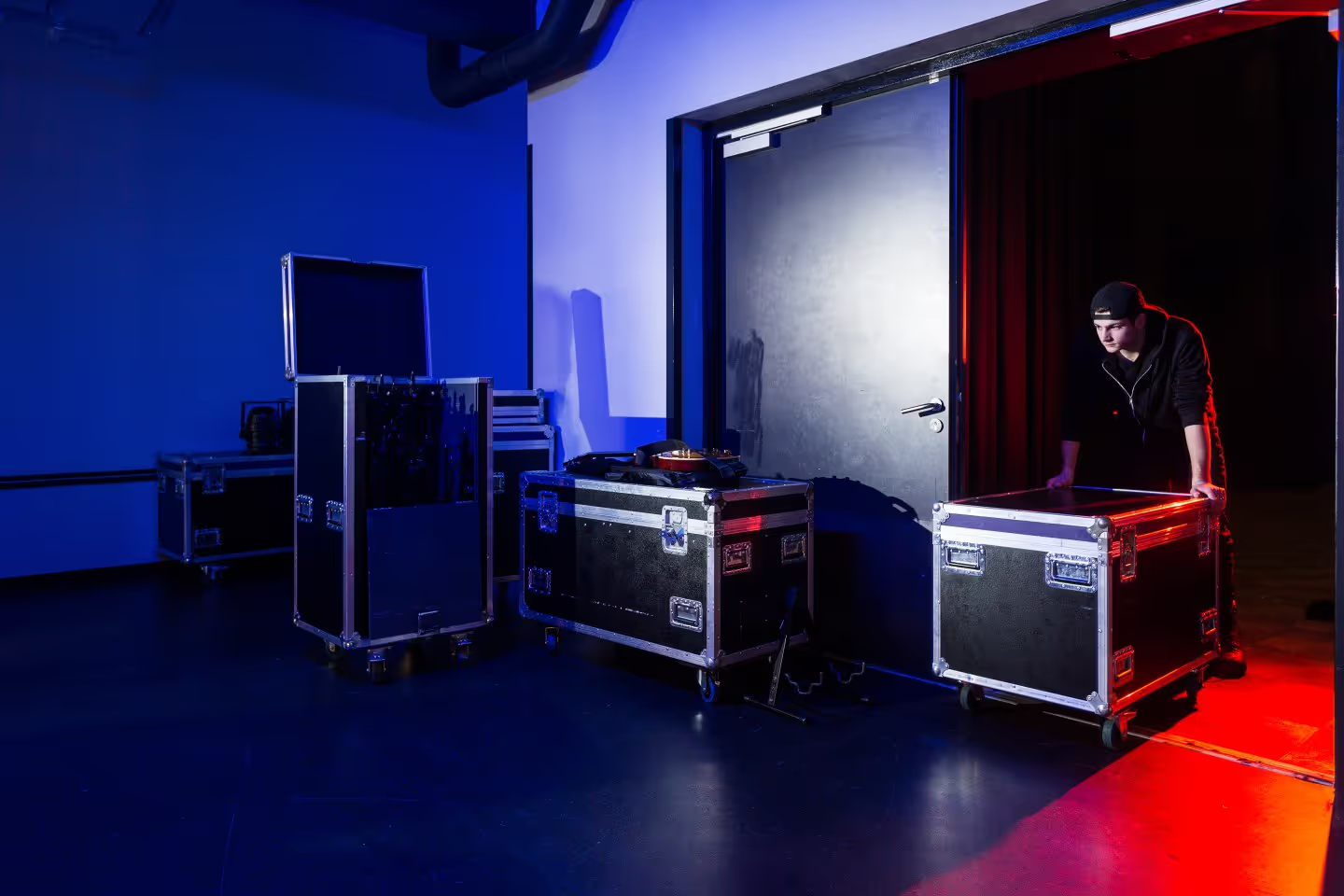The Essential Guide to Event Crew Roles

Organizing events—from corporate events to sporting events, and everything in between—requires a highly skilled, hardworking team working behind the scenes to ensure everything runs smoothly. The event crew plays a pivotal role in this process, managing tasks like unloading trucks, setting up equipment, and handling logistics at some of the biggest events and incredible venues across the globe. Whether it's a live event or an exhibition, each member of the crew has specific responsibilities that directly impact the success of the event. In this guide, we will break down the essential roles within an event crew, offering insight into what each position entails, and how they collaborate to create seamless, memorable experiences for clients.
Introduction to Event Crew Roles
Understanding the Basics
Understanding the basics of event crew roles is crucial for anyone involved in the events industry, whether you're planning corporate events or large-scale festivals. The event crew is responsible for ensuring that the event aligns with the client’s vision while maintaining high standards in all aspects, from production to the final wrap-up. Members of the crew must adapt quickly to new challenges and be prepared to manage unloading trucks, setting up sound equipment, adjusting lighting, and taking on various other responsibilities. The goal is to create a smooth, well-coordinated experience in amazing venues. Recognizing the critical nature of these roles is vital to understanding what it takes to manage successful events that leave clients and attendees in awe.
Importance of Event Crew
The event crew is the backbone of every successful event—whether it's a corporate, entertainment, or a sporting event. Without their expertise and hardworking efforts, even the best-laid plans could fall apart. The event crew ensures that every detail, from stages to safety measures, is meticulously handled to guarantee a flawless event. With teamwork and effective coordination, the crew tackles unforeseen issues and tight deadlines with pride. Their role goes beyond production; they are essential for the client's happiness and are key to creating a seamless event experience, from start to finish.
How Roles Differ by Event Type
The responsibilities within an event crew can vary depending on the type of event being organized. For example, a music festival or live event requires different expertise compared to managing corporate events or exhibitions. A festival crew might focus on sound, lighting, and crowd control, ensuring that performers are ready and equipment operates efficiently. On the other hand, a corporate event crew might prioritize audio-visual services, seating arrangements, and stage management. Each event type has unique demands, and understanding how these roles adapt to various locations is crucial for assembling a team with the appropriate skills.
Coordinating all these roles efficiently often requires dedicated event staffing software that helps assign the right people based on skills and availability.
Key Roles in Event Planning
Event Manager Responsibilities
The event manager is the linchpin of the event crew, overseeing every aspect from initial planning to the successful execution of the event. They ensure the event aligns with the client’s goals and stays within the budget, coordinating with various stakeholders and overseeing logistics. No matter the scale of the event, the event manager needs to maintain a high level of professionalism. Their job includes working with the team to ensure the event crew is prepared, that the venue is set up as planned, and that everything runs smoothly during the hours leading up to the event. Their ability to manage and operate the entire event process ensures a happy client at the end of the day.
Role of the Coordinator
Event coordinators play a critical role in managing the finer details, ensuring that all aspects of the event run smoothly. From scheduling to liaising with vendors, event coordinators are experts in supporting the event crew on the ground. Whether working on a live event, corporate events, or an exhibition, the coordinator ensures that everything—from the unloading trucks to the final sound check—occurs without a hitch. Their ability to adapt to the fast-paced world of events is essential for maintaining smooth operations, regardless of venue.
On-site Supervisor Duties
The on-site supervisor is the key figure ensuring everything goes as planned during the event. They manage the event crew in real-time, ensuring tasks are executed efficiently and that safety protocols are followed to the letter. Whether overseeing stage management, coordinating lighting, or managing crowd control at one of the world’s biggest events, the on-site supervisor keeps everything on schedule. Their ability to act swiftly and maintain calm in high-pressure situations guarantees the event stays on track and that the client's needs are met with precision.
Technical Crew and Their Functions
Sound and Audio Technicians
Sound and audio technicians are essential to any event, ensuring that the auditory experience aligns with the event’s goals. Whether it’s calibrating sound levels for a live event or creating the perfect audio-visual experience for a corporate event, these professionals ensure the sound quality is crisp and clear. Their work starts well before the event with sound checks and continues throughout the event—from unloading trucks to managing audio equipment. Whether it’s a sporting event, a festival, or an exhibition, their expertise ensures the audience and clients hear every note clearly, creating an immersive experience that complements the event’s atmosphere.
Lighting Crew Essentials
Lighting is a key element that sets the mood and energy of an event. The lighting crew designs and implements lighting that transforms any venue into a dynamic space. Their work ensures that the lighting flows seamlessly with the sound and stage management, making moments shine and keeping the audience engaged. In addition to their technical expertise, they are also trained to troubleshoot lighting issues, ensuring minimal disruption during the hours leading up to and throughout the event. Their work creates the perfect environment for success.
Stage Management Tasks
Stage management is crucial for events with live performances or exhibitions. The stage manager coordinates every aspect of the event on the day itself, from directing performers to ensuring the technical elements are aligned. Whether it’s a music festival, a corporate event, or a sporting event, the stage manager’s responsibility is to ensure everything runs on schedule, managing the team to deliver a flawless experience. Their ability to stay calm and organized is key to the event crew’s success, ensuring everything from sound checks to safety protocols is handled with pride.
Supporting Roles and Their Impact
Hospitality and Guest Services
The hospitality team is responsible for making attendees feel welcome, ensuring a smooth event experience from start to finish. Whether assisting with check-ins at a live event, providing information at exhibitions, or guiding guests at a corporate event, they are often the first point of contact for guests. Their communication skills and professionalism ensure that clients are satisfied and attendees are comfortable. As part of the event crew, they help set the tone for a memorable event, leaving a lasting impression on all those involved.
Security and Safety Personnel
Ensuring the safety of guests, performers, and the crew is a top priority. Security personnel are responsible for monitoring the venue, managing access points, and preventing disruptions. They work closely with other members of the event crew to ensure the event is conducted in a safe and secure environment. Their vigilance also allows the event to proceed with confidence, and their presence provides peace of mind for clients and attendees.
Logistics and Transport Teams
Logistics and transport teams are essential to the smooth operation of any event. They are responsible for unloading trucks, managing transportation, and ensuring all materials arrive at the venue on time. Their role includes ensuring that equipment, attendees, and other elements of the event are moved efficiently to avoid delays. Whether handling deliveries to amazing venues in London or setting up for a sporting event in the West Midlands, their expertise ensures everything is in place, so the event crew can operate efficiently.
Bringing It All Together
Successful events rely on the hard work and professionalism of an experienced event crew. From stage management to sound and lighting, every role is crucial for ensuring a smooth, seamless experience. Clear planning and communication—such as sharing a detailed crew call sheet—help ensure everyone knows their role, call time, and responsibilities. Our free crew call sheet template offers a simple way to support your crew and keep event-day operations running smoothly.
Whether at corporate events, sporting events, or festivals, understanding these roles and how they contribute to the success of the event ensures a memorable experience for both clients and attendees. The event crew’s ability to adapt,work under pressure, and deliver results with high standards is what sets apart the best events.
Tips for Aspiring Crew Members
For those looking to join an event crew, it’s important to gain knowledge across various aspects of the events industry. Whether your interest lies in sound, lighting, or logistics, gaining hands-on experience through internships or volunteering can provide invaluable insight. Stay flexible, develop strong communication skills, and embrace the fast-paced nature of the industry. The hardworking guys in the crew are the ones who make every event a success. Embrace these tips to start your career in the exciting world of event management.
Technology Helps
As the events industry continues to evolve, new technologies are making it easier to hire, schedule, and communicate with event crew. Take Rentman. It’s an all-in-one operations management platform that allows you to plan events from quote to completion, schedule crew, and communicate changes along the way. Find out how it can work for you and your crew today.
Frequently asked questions
Previous blog posts

Why Team Communication Software is a Game-Changer for AV, Events, and Media Production Businesses
Why Team Communication Software is a Game-Changer for AV, Events, and Media Production Businesses

The Ultimate Guide to Event Staffing in AV, Events, and Media Production
The Ultimate Guide to Event Staffing in AV, Events, and Media Production

